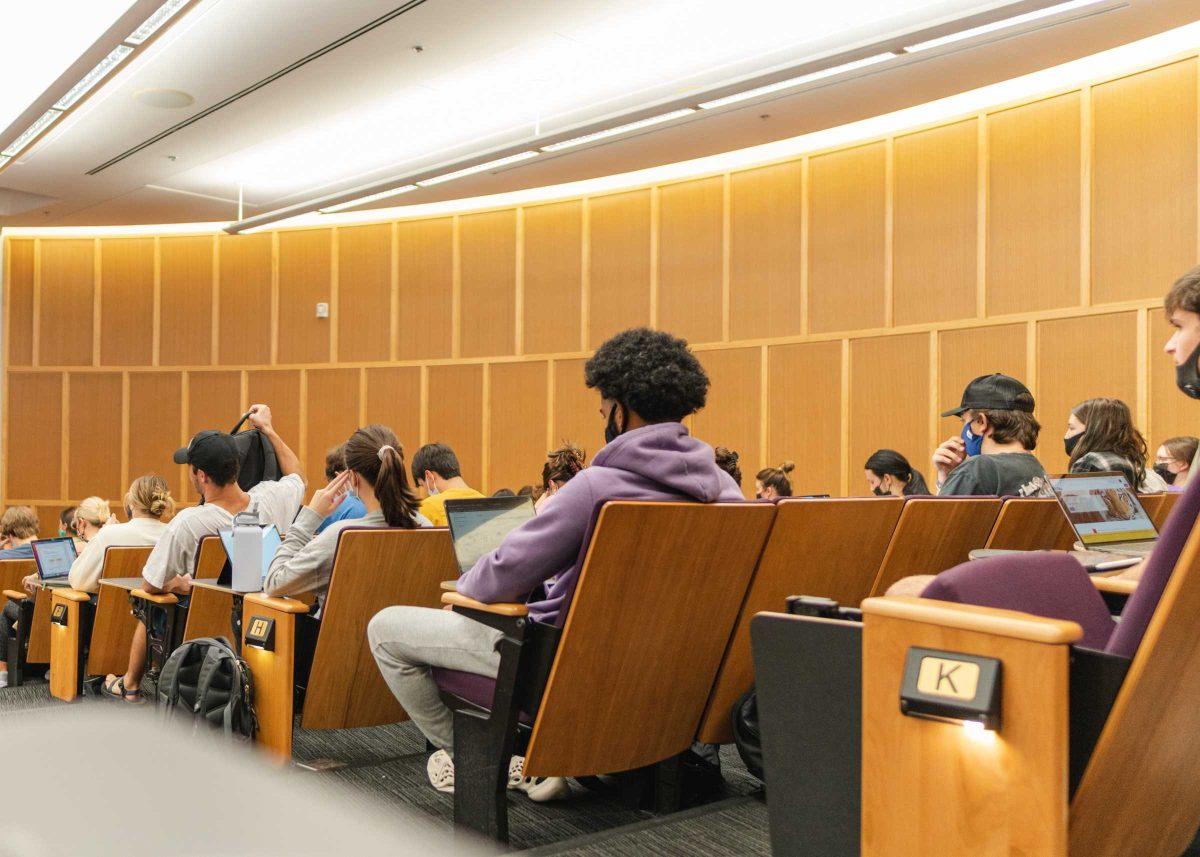College students often think that to succeed, they need the latest piece of technology, whether that be the newest computer or the latest iPad, and this reliance has slowly but surely eroded the technical skills necessary for students to succeed.
As technology continues to grow and evolve, this problem will only get worse. This problem is not the fault of the students but rather the fault of societal forces. It’s the fault of consumerism.
Consumerism is the “theory that individuals who consume goods and services in large quantities will be better off,” according to Investopedia.
Consumerism leads to us relying on technology more because we feel that we are behind if we don’t have the latest piece of technology, as if we are functioning less efficiently without it. With young adults being much more likely to utilize the internet, according to data from the Pew Research Center, it’s no wonder college students fall into this trap.
It’s being subconsciously engraved into the minds of students through consumerism that technology is a necessity and it’s the only way we will succeed.
When companies begin to market a new electronic, they designate a specific demographic to target. The specific demographic typically is college students. For example, Apple is one of the main companies that focuses on college students buying their products. Apple realizes that most college students are on a strict budget and cannot afford to buy their products at retail prices. This is one of the main key reasons why Apple offers a college-student discount.
This is an example of the law of diffusion of innovation. This theory was created by professor Everett Rogers to further explain how companies market their products to customers, according to Boston University. He explained that consumers are categorized into five groups when it comes to marketing. The groups are the innovators, early adopters, early majority, late majority and laggards.
Each group is given a specific market strategy to ensure that the consumers will buy the company’s products. In the example previously given, college students would be the innovators of Apple products. Innovators are more likely to try a product when it first comes out. Young adults are more likely to try a new product than the older population, and companies recognize this.
It’s not just Apple that does this. Companies such as Best Buy, Amazon Prime, Samsung, and Dell all offer a type of student discount on their products. This idea is simple and effective for these companies.
Growing up, there was a shift in how technology was used in school. Technology used to be a learning tool, but eventually, it became the main learning tool used in school. Teachers begin incorporating technology into the curriculum. All the coursework began to be posted online rather than given on paper.
In the past 10 or so years, it has become apparent that having access to technology has become a crutch for us. No longer do we need to have knowledge or our own skills.
As a society, we especially saw this shift post-COVID but gradually, from middle school until college is when the shift started for me.
Too much of anything is not good for you. Consumerism is one of the biggest issues that we face today as a society. It’s up to us to put a stop to it before we can no longer function without technology, but some fear that it’s already too late.
Lindsay Bickham is an 18-year-old Mass Communication Major from New Orleans.
Opinion: The consumerism of technology is consuming college students
February 18, 2023
LSU students take notes on their laptops on Tuesday, Oct. 12, 2021, in the Business Education Complex Auditorium on South Quad Drive in Baton Rouge, La.







